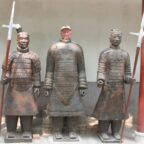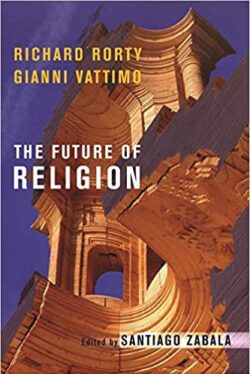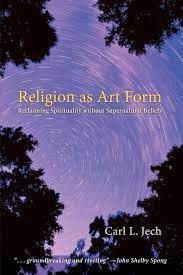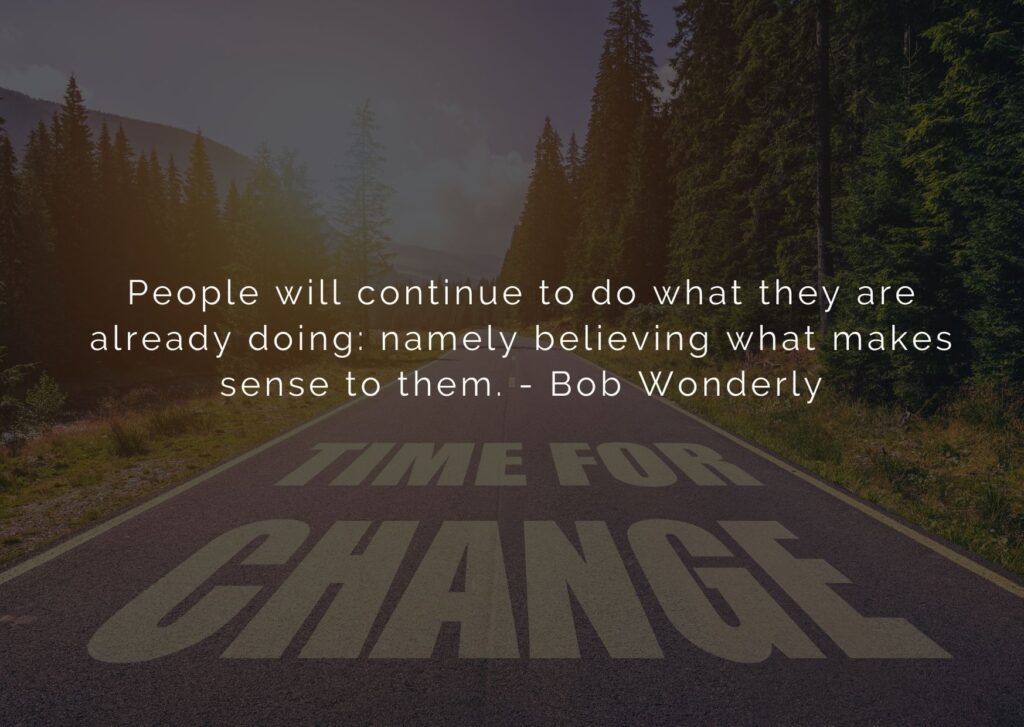Changing World Views
Before heading into Changing World Views, let’s review how Wikipedia defines a World View. It is “the fundamental cognitive orientation of an individual or society encompassing natural philosophy; fundamental, existential, and normative postulates; or themes, values, emotions, and ethics.” Or, in a more modest manner, “the framework of ideas and beliefs through which an individual interprets the world and interacts with it.”
World Views and Society
World views have serious implications for a society’s understanding of reality; a world view influences what one recognizes or fails to notice in the world, how one views the “other”and gives rise to social and political ideologies for dealing with what or whom is considered “the other.” Linguist George Lakoff, whose work on “frames,” largely in the context of politics, argues that language, both its terms and structures are “framed” in a specific context identified with a specific world view. It is from within the frames that meaning and argumentation are created and function.
The idea that world views cannot be separated from the language used to talk about the world is somewhat discomforting. Language does not so much express a truth about something already known, rather it creates the unknown so that the known may be discovered. Thus, the claim is often made that language creates reality. Not only does language provide a basic grammar and structure for the categorization and expression of experience, but provides the structures of popularly perceived “givens” such as time, space, and causation.
Differences of opinion about causation, for example, are reflected philosophically in the questions regarding free will or determinism. Differences of opinion resulting in the descriptive and functional ways people express natural phenomena exist, not because reality is there staring us in the face, but because they are mental constructs from a vast reservoir of impressions. These constructs go beyond descriptions of the natural world. They are also inclusive of “values,” including methodologies, within the construct integrating social and political categories.
World Views: Religious Perspectives
World views also involve religious perspectives and the creative power of religious language. The result is similar to any other world view in providing a framework of beliefs for interpreting the world and providing basic values for interacting with it. Specific religions provide the specific structures of ideas of time, such as a beginning and end, eternal cycles, or timelessness, and corresponding spacial and causal relations that transcend naturalistic explanations. More mythically based religious world views may be to a great extent dependent on non-rational responses to data and interpretations than to rational considerations or scientific descriptions of the world.
Such a religious world view is supported by a basic commitment to values present in sacred stories, parables, and other literary genre; whether from a different perspective they are considered true or false, real or fictional. The values, being inseparable from the literary and linguistic forms containing them, are to be “believed” as a unity, and are often considered certain or infallible, thus unchangeable units of reality. Furthermore, a kind of logical theory is possible (theology), by working from a presupposition of logical consistency. This logical theory can work within either a confined system (religious tradition and sacred text), or an open system involving all that is known by other systems of knowledge.
Linguistic Barriers to Shared World Views
Because language is so integral to collective understanding within a world view, one language may be difficult to translate into another. This makes creative and corrective comparisons among world views challenging. This situation does not necessarily mean that there is “world view and linguistic relativity,” and that no mutual understanding can take place among groups with different views and languages. Even in very different languages and world perceptions, some degree of calibration is possible. Nevertheless, a world view determines the kinds of questions asked about the world and the kinds of answers expected in return.
World views can and do change. In the case of interacting societies, cultures, and world views expressed linguistically, both language and the understanding of the world are modified by constant interchange. Thus, some degree of “world view fragmentation” occurs across cultural contacts involving the collision of different systems of knowledge which contribute to formation of new world views and modifications in knowledge systems. This process is not a smooth or easy one. For example, over time we have witnessed how social and political ideologies have produced different views of the world. The concept of “manifest destiny” was responsible for creating the American landscape in terms of “property” and classifying the indigenous peoples as subhuman “savages” with few or no rights to land or deserving of human rights. More recently, we encounter creative concepts like ecology and conservation, versus natural resource exploitation and utilization.
World View: Values and Morality
Like the power of manifest destiny, political and economic ideologies cannot be separated from these other perspectives. Nor can religious beliefs impacting the value of conservation of natural resources for the present and the future be exempted from beliefs about the end of the world. Viewing resistance movements as “terrorist” or “freedom fighters” is another conspicuous example of how value systems and language mold views of reality, thus world views. We may not have experienced a “War of the Worlds,” but we are constantly involved in wars of “world views;” and the fact that we are involved in an ideological and verbal war rather than a peaceful transition is testimony to the power of values and morality that are endemic in every world view.

Joe Greig, Ph.D.
Ph.D. (New College, Edinburgh University), Professor Emeritus Andrews University, Berrien Springs, MI










